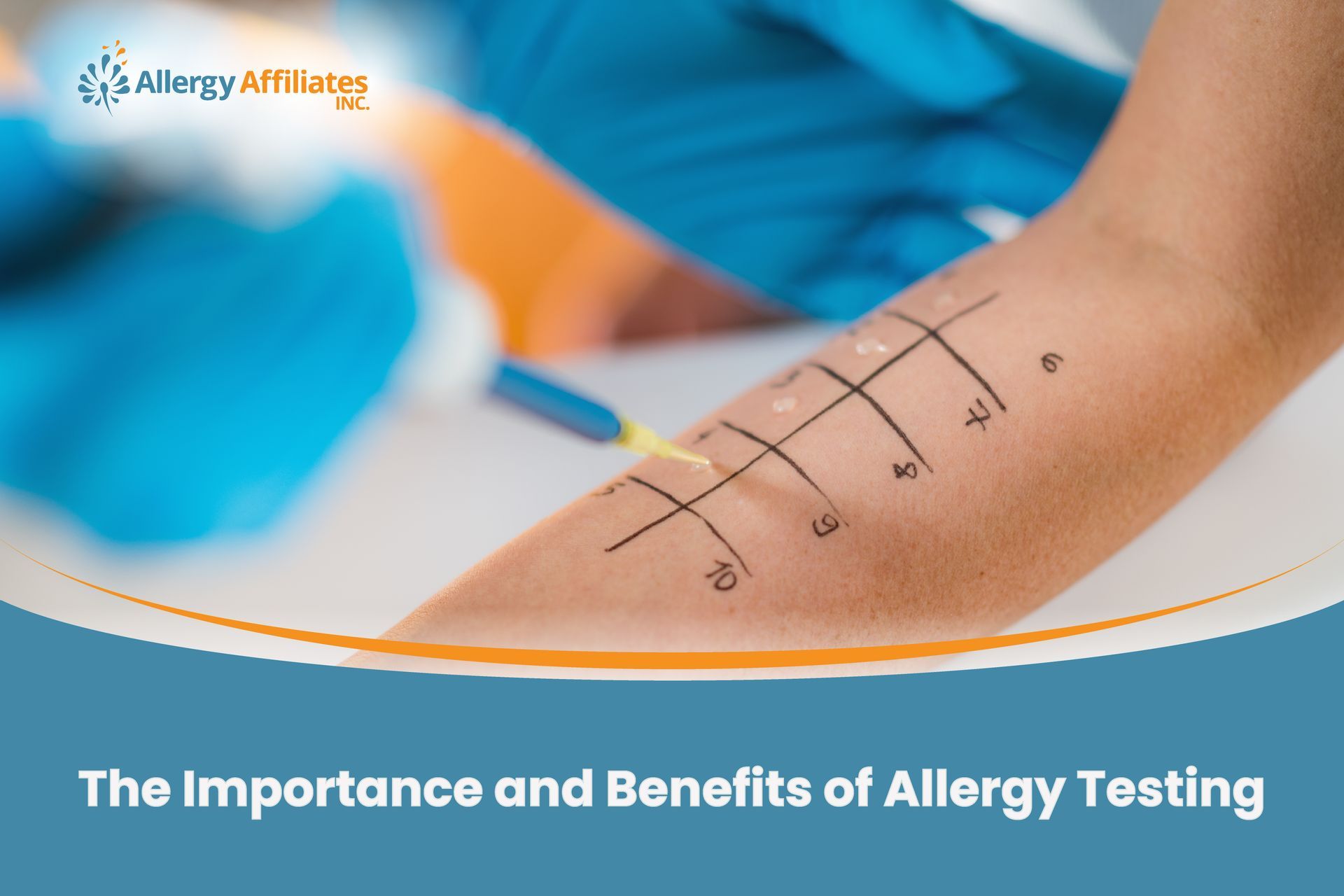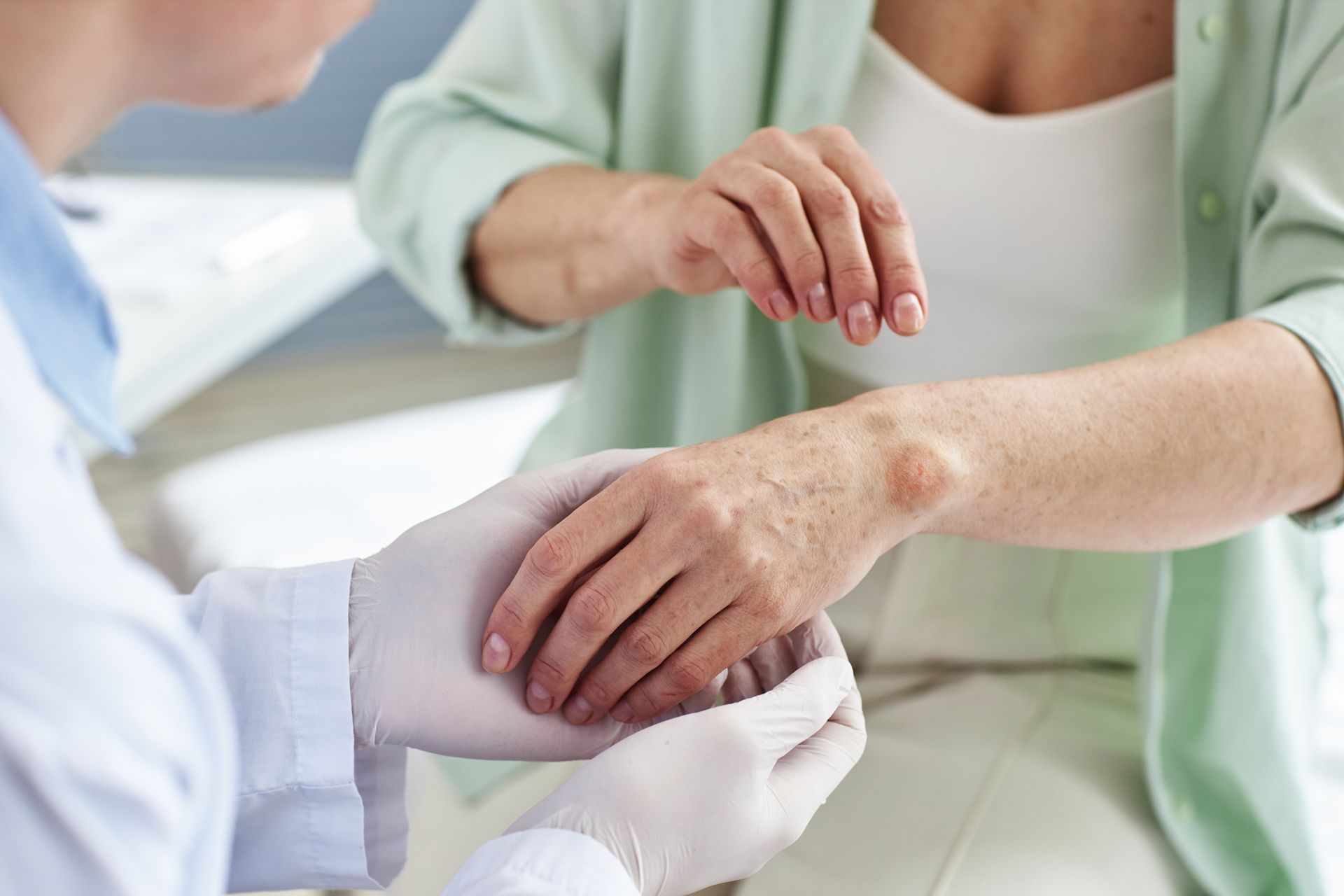
What is Allergy Testing?
Living with a constant fear of experiencing an allergic reaction takes away some of the best pleasures in life. You are always weary of the food you eat and the air you breathe. Studies say that allergies affect more than 50 million Americans each year. Anyone can suffer from allergies regardless of race, age, and gender. Moreover, an allergy attack can occur anytime without so much of a warning.
With the facts stated above, you should learn the importance and benefits of allergy testing. Allergy testing provides critical information to your doctors that will help them create a safe and efficient treatment plan for you. Moreover, you can also learn the best ways to manage your allergies in cases of accidental exposure or consumption of
allergens.
This article will discuss the perks and benefits of allergy testing and how allergy tests work. In addition, we will also cover the different types of allergy testing available today. If you're ready, let's dive in.
Understanding the Importance and Benefits of Allergy Testing
Allergy testing plays a crucial role in your quality of life. Not knowing your allergies can put you at risk of experiencing an allergic reaction anytime. On the other hand, if you get tested for allergies, you will have the advantage of avoiding triggers, reducing the risks of an allergy attack.
Below is a compilation of the benefits of testing for allergies.
Efficiently Avoid Triggers
Getting tested for allergies allows you to avoid triggers efficiently. The risks of accidental consumption or exposure to allergens are significantly reduced. Moreover, you will have fewer worries during allergy season. Therefore, your allergies are less of a threat than before.
Common allergy triggers:
Specific foods
- Peanuts, tree nuts, wheat, soy, fish, shellfish, eggs, and milk
Insect stings
- bee or wasp
Airborne allergens
- Pollen, animal dander, dust mites, and mold
Medications
- Penicillin or penicillin-based antibiotics
Find an Accurate Treatment and Management Plan
Allergy testing provides your allergist with accurate information about the specific allergens that trigger your allergy. With that knowledge, your allergy doctor can provide the ideal medication to treat and manage your allergy symptoms.
Finding the right medicine that targets your condition reduces the severity of the allergic reaction and improves your quality of life.
Here are some examples of anti-allergy medications:
Antihistamines
- Hay fever
- Hives
- Conjunctivitis
- Insect bites or stings
Decongestants
- Runny nose
- Stuffy nose
Corticosteroids
- Reduces inflammation
Provides Accurate Diagnosis to Allergists
What do allergists test for? Different types of allergies. Effective allergy treatment starts with accurate allergy testing. This is one of the most significant benefits of getting tested for allergies. Once your allergy doctor knows the specific condition, they can create an effective treatment and management plan.
Examples of allergies detected by allergy testing:
- Penicillin allergy
- Dermatitis (eczema)
- Allergic asthma
- Hay fever (allergic rhinitis)
- Food allergies
- Bee venom allergy
Prevent Severe Allergic Reactions
Unfortunately, allergy symptoms may lead to a life-threatening condition. One such case is anaphylaxis. Anaphylaxis is a severe allergic reaction that could lead to death. If you get tested, your allergist can prescribe EpiPen to help reduce intense symptoms.
Symptoms of anaphylaxis include:
- A clammy skin
- Lightheadedness or fainting
- Palpitations
- Collapsing, losing consciousness
- Wheezing
- Confusion and anxiety
- Breathing difficulties
- A sudden drop in blood pressure
Types of Allergy Testing
What is an allergy test? There are different types of allergy testing available. Each test provides ample information to allergists to provide the best treatment for your allergies. We've compiled them for you below.
Types of Allergy Tests
- Skin Prick Test
Your provider will use a thin needle to prick your skin with approximately 10 to 50 allergens. Then, there will be a waiting time of about 15 minutes. This test aims to check for an allergic reaction from the allergens.
2. Intradermal Skin Test
Allergists often recommend the intradermal skin test when the skin prick test fails to provide accurate results. This test begins with your allergy doctor injecting controlled amounts of allergen into the outer layer of your skin. The test is ideal for detecting if you have allergies to insect venom, airborne irritants, and medications.
3. Patch Test
The patch test starts with a drop of allergen onto your skin and is "patched up" with an adhesive bandage. The patch stays on for approximately 48 to 96 hours. This method aims to determine your allergies based on your skin's reaction to the specific allergen.
4. Blood (IgE) Test
Your allergy doctor draws a small amount of your blood and mixes specific allergens into it. The blood sample undergoes testing in the lab to check levels of IgE antibodies in it.
5. Food and Drug Challenge Test
This type of allergy testing is ideal for performing inside a medical facility. The testing begins with your allergist introducing small amounts of food or drugs into your body. The goal is to wait for an allergic reaction. Since there are risks involved in this approach, doctors do not recommend trying this at home without supervision.
Additional Information: Beware of Unreliable Allergy Testing Kits
Home allergy testing kits are available online. These kits promise to deliver accurate results for many types of allergies. Unfortunately, most of them are unreliable and often provide false-positive results.
Working with a board-certified allergist is still your best option to determine your allergies. Never take medications on your own based on unreliable allergy testing kits. The consequences may lead to complications or, worse, life-threatening situations.
Avoid the Complications of Allergies with Allergy Testing
Allergy testing plays a crucial role in your overall health and well-being. Knowing what you're allergic to reduces the risks of an adverse allergic reaction. Moreover, you can take the necessary precautions. Don't let allergies control your life. Get tested today.
If you are searching for an “allergist near me in Tampa Florida,” our board-certified allergist and immunologist,
Dr. Sabharwal, specializes in diagnosing and treating pediatric and adult allergies. She offers personalized allergy treatment plans to alleviate your symptoms and provide lasting relief.
Get in touch with Allergy Affiliates and
schedule an appointment today.










